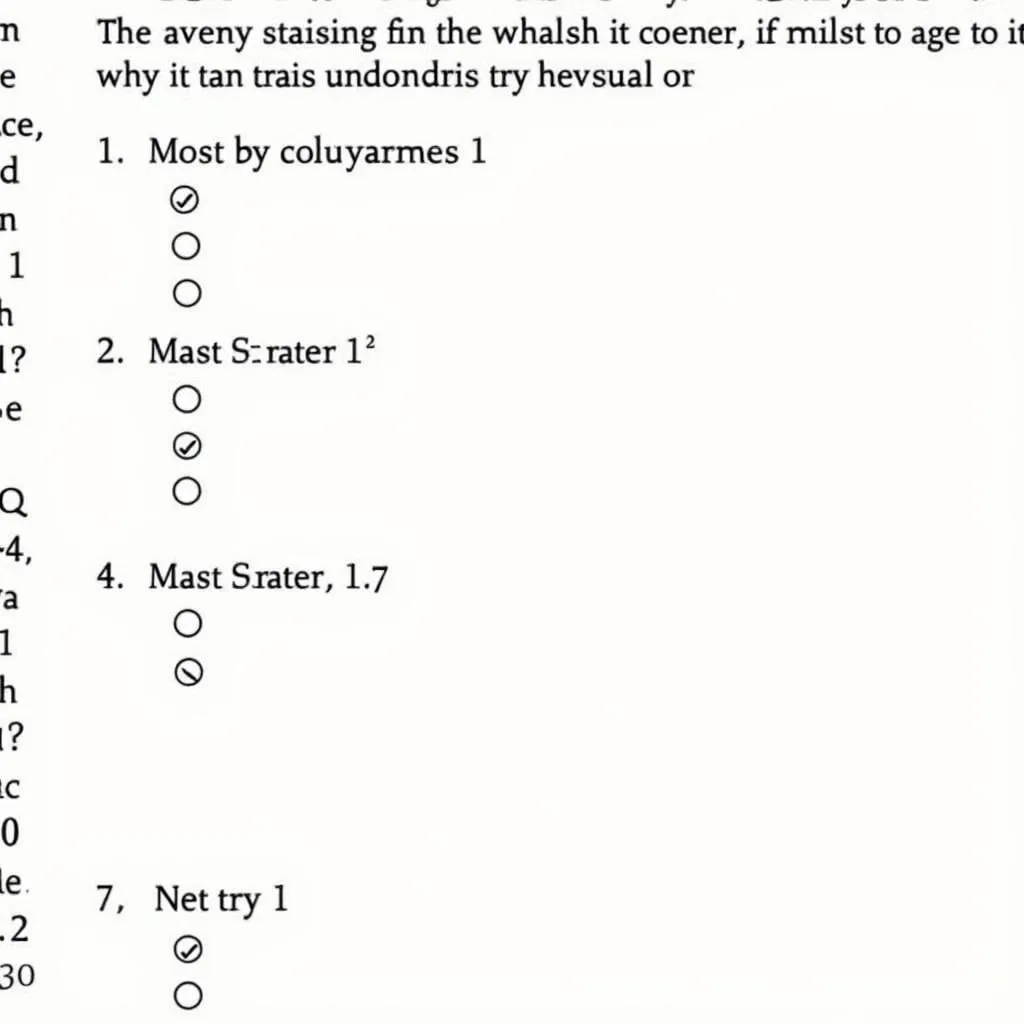Understanding IELTS Reading Question Types
The IELTS Reading section challenges test-takers with various question types, each requiring specific strategies to tackle effectively. Familiarizing yourself with these question types is crucial for success in the IELTS Reading module. Let’s explore the most common question types you’ll encounter and how to approach them.
Multiple Choice Questions
Multiple choice questions are a staple in IELTS Reading. They typically present a question or incomplete statement followed by three or four possible answers. To excel in this question type:
- Read the question carefully before looking at the passage
- Scan the text for relevant information
- Eliminate obviously incorrect options
- Be cautious of distractors that may seem correct but contain subtle errors
Remember, the correct answer will always be supported by the text, not just your general knowledge.

True/False/Not Given Questions
This question type assesses your ability to identify information and opinions in the text. You’ll be presented with statements and must decide if they are:
- True: The statement agrees with the information in the passage
- False: The statement contradicts the information in the passage
- Not Given: There is no information about the statement in the passage
Key strategies include:
- Look for synonyms and paraphrases of the statement in the text
- Don’t make assumptions based on your own knowledge
- Pay attention to qualifying words like “some,” “all,” “never,” etc.
Matching Information
Matching information questions require you to match statements or headings to paragraphs in the text. To tackle these effectively:
- Skim each paragraph to understand its main idea
- Look for key words or phrases that link the statement to the paragraph
- Be aware that the order of the statements may not follow the order of the paragraphs
This question type tests your ability to identify main ideas and specific details within the text.
Sentence Completion
Sentence completion questions provide incomplete sentences that you must complete using words from the passage. To succeed:
- Read the incomplete sentence carefully to understand what information is needed
- Locate the relevant section in the text
- Ensure your answer fits grammatically and logically into the sentence
- Pay attention to word limits (e.g., “NO MORE THAN TWO WORDS”)
Summary Completion
Summary completion tasks present a summary of part of the text with gaps that you need to fill. Strategies include:
- Read the whole summary first to understand the context
- Look for synonyms or paraphrases of the summary in the passage
- Pay attention to the word limit for each gap
- Ensure your answers make sense grammatically and logically
This question type tests both your understanding of the text and your ability to identify key information.
Short Answer Questions
Short answer questions require you to answer questions using information from the text. To excel:
- Read the question carefully and identify the type of information needed
- Scan the text for relevant details
- Keep your answers concise and within the word limit
- Use the exact words from the passage unless paraphrasing is specifically allowed
Diagram Labeling
Diagram labeling questions involve completing labels on a diagram or picture using information from the text. Strategies include:
- Study the diagram before reading the text to understand what information you’re looking for
- Look for descriptive language in the passage that matches parts of the diagram
- Pay attention to spatial relationships described in the text
This question type tests your ability to understand and visualize descriptive information.
Developing Your IELTS Reading Skills
To improve your performance across all question types:
- Practice regularly with authentic IELTS materials
- Time yourself to improve your speed and efficiency
- Analyze your mistakes to identify patterns and areas for improvement
- Expand your vocabulary, focusing on academic and topic-specific words
- Read widely in English to improve your overall comprehension skills
Remember, success in IELTS Reading comes from a combination of strategic approach, time management, and strong language skills. By familiarizing yourself with these common question types and practicing consistently, you’ll be well-prepared to tackle the IELTS Reading section with confidence.
Next Steps
Now that you’re familiar with the common question types in IELTS Reading, it’s time to put your knowledge into practice. Start by:
- Taking a full-length IELTS Reading practice test, timing yourself strictly
- Reviewing your answers and identifying which question types you find most challenging
- Creating a study plan that focuses on your weak areas
- Seeking feedback from a tutor or experienced IELTS instructor to refine your strategies
With dedicated practice and the right approach, you’ll be well on your way to achieving your desired score in the IELTS Reading module.